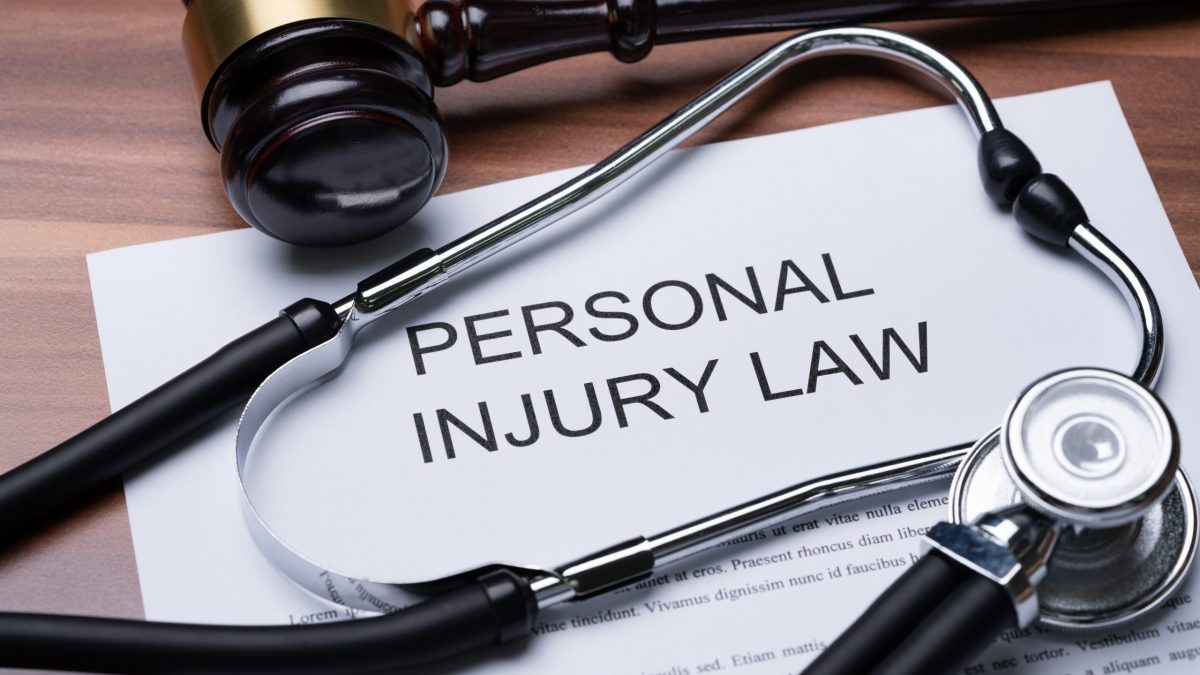
How To Become An Immigration Lawyer
May 11, 2021
Choosing your career in law
May 13, 2021Many consider becoming lawyers at some point in their lives, but it is a demanding profession that requires a significant commitment. Are you an aspiring lawyer thinking about pursuing a career in personal injury law? It might be a challenging and competitive field, but it’s also deeply rewarding.
A personal injury lawyer represents victims who have suffered a physical or psychological injury as a result of the actions of an organization or another individual. This means they fight for the rights of people that were involved in traffic accidents, occupational accidents, medical malpractice cases, daycare abuse, etc. They help these people get compensation for their injuries.
By becoming a personal injury lawyer, you’d have the opportunity to make a major difference in people’s lives, and if you’re good at it, it also pays very well. In this article, we will explore what it takes to become a personal injury lawyer.
Personal Injury Is Tort Law
Personal injury cases belong to an area of the law known as tort law which covers private or civil wrongs and injuries with the goal of compensating the injured party and discouraging other individuals and organizations from engaging in the practices that led to the wrongdoing by penalizing them.
As a personal injury lawyer, you’d be helping your clients, the plaintiffs, obtain compensation for their losses. This could mean losing the ability to work and therefore earning capacity, pain and suffering, medical expenses, emotional distress, as well as the legal costs, including attorney fees.
According to Baumgartner Law Firm, the amount the plaintiff can get in compensation depends on how seriously they were injured, the insurance limits applicable, and the specific context of the case. A personal injury attorney’s job is to protect their clients from being victimized by insurance companies and the legal system.
Required Education
Attorneys must all follow the same training and education. They must obtain their law degrees and pass the bar exam, but to get into law school, you first need an undergraduate degree. Most law schools will accept any study field, but the most popular majors for aspiring lawyers are political science, social science, history, and English. Pre-law programs are also available at many schools.
When you’re close to getting your bachelor’s degree, you’ll need to the LSAT – Law School Admission Test – which is a multiple-choice exam designed to assess your skills in research, logic, critical reading, and task management, all necessary to becoming a successful lawyer. Your chances of getting into law school will depend on your grade point average and your LSAT score.
Law school will require another three years of study beyond your bachelor’s degree. As a first-year student, you’ll be studying general subjects like constitutional law, criminal law, property, torts, contracts, and legal writing.
In the second and third year, you can specialize through elective courses related to personal injury, civil litigation, advanced tort law, and medical malpractice law. We also need to note that to get admitted to the bar, most states will require you to get your law degree from a law school that’s been approved by the American Bar Association.
You’ll also want to intern with law firms specialized in personal injury cases so you can get more familiar with trial practices typically used in this field.
To practice law, you’ll then need to pass the bar exam. Personal injury lawyers take the same bar exam as all other specialties, but the content and format differ from state to state since every state has its own laws. You’ll want to take the bar exam for the state where you intend to practice.
After passing the bar exam, you’ll need to pass the Multistate Professional Responsibility Examination (MPRE), which is also a multiple-choice exam designed to measure your understanding of professional conduct and ethics.
To maintain your bar status, you will be required to complete continuing education so you can stay current with advancements in the field and changes in laws.
Personal and Professional Skills Required
To be a successful personal injury lawyer, you need excellent oral advocacy skills, and you need to know how to attract and work with your clients and how to negotiate both with them and on their behalf. You should be able to deal with stress effectively and work well under pressure.
Most personal injury lawyers work on a contingency basis. This means that their fees a portion of the plaintiff’s final compensation – typically 30 to 40%. Their clients don’t pay any fees unless you’re successful in getting compensation on their behalf.
Some cases can go for years, so you’ll need to balance them out with shorter ones which means you need to be good at time management and planning.
As we mentioned in the previous section, it’s very important to first work with an established firm to learn the ins and outs. The employment outlook is quite good because many law firms depend on the income from litigation. Still, there’s always the risk that tort reforms reducing litigation in the civil justice system can make things more challenging.
Income
Lawyers who specialize in personal injury are among the highest-paid professionals. The median salary in the United States is $83,272 per year, but it can vary from $30,000 and $300,000. It all depends on location, size of practice, and the level of experience the lawyer has. The most successful ones make seven figures.
The personal injury lawyers who pull in the highest fees usually handle high-dollar personal injury cases and class action suits. If you get paid as a percentage of compensation that goes up to millions of dollars, it makes sense that you’ll enjoy a higher income.
Keep in mind that these lawyers also started on much more modest salaries, working for established firms and earning a percentage of the fees the firms get.
As you advance in your career, focus on building a network that will raise your profile and make it easier to attract clients and get higher fees. Continuing education is not only necessary to stay up-to-date. It’s also a valuable opportunity to meet people that will help you reach your goals.





